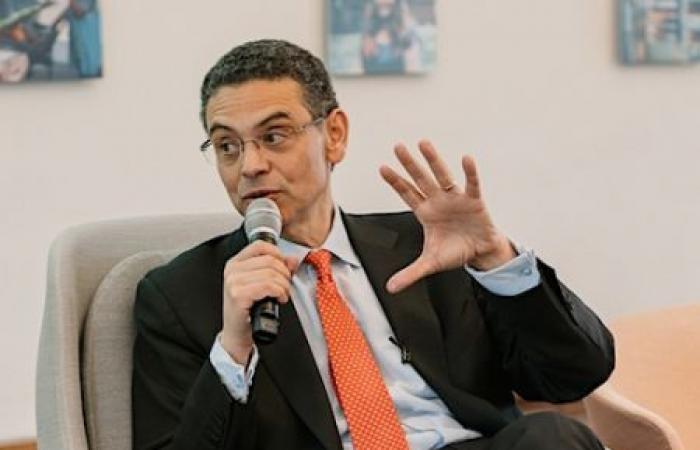(AFRICAN DEVELOPMENT BANK) – Africa could benefit from the fourth industrial revolution, and particularly from artificial intelligence (AI), if and only if it has adequate infrastructure. The continent currently has one of the largest digital divides.
Speaking on the final day of the 2024 African Economic Conference (AEC) in Gaborone, Botswana, Pedro Conceicao, one of the authors of the upcoming Human Development Report (HDR) 2025, said that compared to other regions , AI in Sub-Saharan Africa is more likely to augment rather than replace professions and tasks.
« Instead of looking at AI and digital technologies as something that fascinates us with their ability to perhaps surpass what people can do, the focus should be on the institutions and policies we can implement to enable these technologies to increase people’s capabilities. To increase human development,Mr. Conceicao said.
« Human Development Report 2025: Harnessing the opportunities of digital transformation to advance human development” is one of three reports that analyze the uncertainty arising from intensifying polarization, the destabilization of planetary systems and the expansion of societal transformation, namely digitalization.
The report will explore the complex dynamics of digitalization, including AI, in the context of human development. It will address the profound and multifaceted impacts of AI on society. With a human-centered approach, it will critically examine how digitalization can either amplify or mitigate existing inequalities, reshape political landscapes and redefine economic structures.
Mr Conceicao admitted that AI already had drawbacks, including a problem of exclusion, as many people are not represented in the information used to train these models, and job losses. But in general, he explained, there are more advantages than disadvantages, including lowering barriers to entry that in the past required very specialized skills, and helping to rapid business growth.
Other panelists, however, expressed concerns about the continent’s readiness for this advanced technology, due to the lack of basic infrastructure such as electricity and data connectivity.
Natalie Jabangwe, executive secretary of the Timbuktoo Foundation, said despite progress in digital inclusion and across the value chain on the continent, Africa is not ready when it comes to infrastructure. “There is a lot of excitement and excitement around AI, but do we have the technological infrastructure to take advantage of this development? No, not really. Many of these digital advancements cannot be delivered if we don’t have electricity in countries, which is critical to building capacity for solutions that will transform people’s lives», stressed Ms Jabangwe.
Alain Ndayishimiye, head of AI and machine learning at the Center for the Fourth Industrial Revolution in Rwanda, said Kigali, which aims to become an AI powerhouse on the continent, still needs to make major progress on this advanced digital technology, and is still grappling with early adoption issues such as infrastructure, regulations and other policy concerns. “However, as Rwanda continues to record the progress we have seen, its digital transformation journey must address certain concerns, including data quality, data privacy and workforce readiness», added Mr. Ndayishimiye.
Countries like Botswana and Namibia have, however, made progress in digital connectivity, improving the lives of their populations and businesses by providing online access in public spaces such as schools and hospitals, while reducing data costs.
ECA 2024, co-organized by the African Development Bank, the United Nations Development Program (UNDP) and the United Nations Economic Commission for Africa (ECA), brought together African leaders, business leaders , academics, young researchers and experts around the theme “Securing Africa’s economic future in the face of growing uncertainty“. It ended on Monday.
The event was held against a backdrop of many shocks, including geopolitical tensions due to wars in Ukraine and the Middle East, fear of trade wars between the United States and China, increasing unrest civilians on the African continent and climate change.






